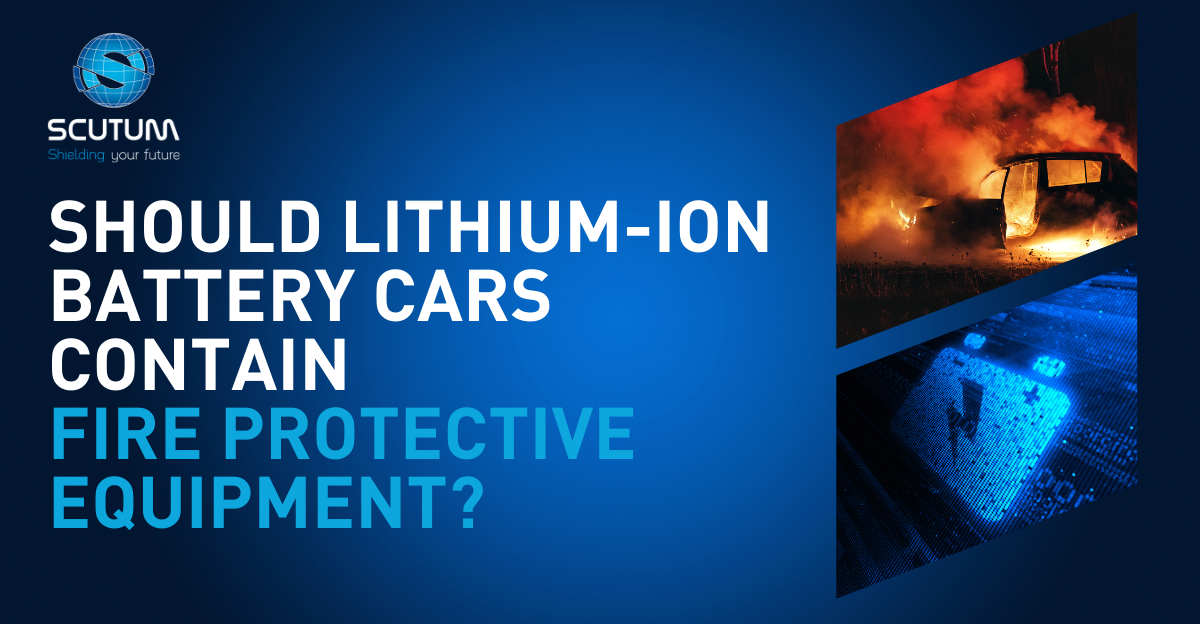
Should lithium-Ion battery cars contain fire protective equipment as a matter of standard safety measures?
Lithium-Ion battery cars have become increasingly popular over the past few years due to their high energy density and low environmental impact. Lithium-ion (Li-Ion) batteries are used in a variety of electric vehicles, including those powered by fuel cells, solar panels and even conventional combustion engines. These types of batteries offer numerous advantages compared to their lead-acid counterparts, such as a longer lifespan and higher energy efficiency.
However, one possible downside of lithium-Ion car batteries is that they can be prone to fire or explosion if damaged or not properly maintained. When a battery is damaged or exposed to extreme temperatures – either above or below its normal operating temperature range – it can cause an internal short circuit which may result in heat build-up that can eventually cause a fire or explosion. Therefore, when purchasing a car with a lithium-Ion battery, it’s important to ensure proper maintenance is done on time and that all safety precautions are taken into account when handling the battery itself.
Given recent advancements in battery technology, the debate over whether lithium-Ion battery cars should contain fire protection has become increasingly relevant. Li-Ion batteries have higher energy densities than traditional lead acid batteries and are now the industry norm for most electric vehicles. However, these batteries may also pose a greater threat of thermal runaway, where an overheating cell can cause an uncontrolled chemical reaction that leads to fire and explosion.
As such, it is important to consider the safety risks associated with Li-Ion batteries and evaluate if fire protection systems are necessary components of electric vehicles. Of course, the safety of cars and their passengers is of the utmost importance for all car owners, and Every car should contain fire protection equipment that can be used in the event of a fire emergency. This includes things like fire extinguishers, fire blankets, and reflective hazard triangles. Does this equipment list need to be extended for electric vehicles?
Fire suppression systems such as suppressant foam inside an enclosure or heat shields around cells can provide additional layers of safety for drivers and passengers. Furthermore, adding sensors to monitor temperature and current flow inside each cell would provide early detection capabilities that could reduce the chances of thermal runaway events leading to fires. These systems typically consist of suppressant foam inside an enclosure or heat shields around cells which can help prevent flames from spreading too quickly or reaching areas where they may cause damage. Additionally, electric cars should be fitted with sensors that detect smoke or high temperatures as a first line of defence against any potential fires.
It is essential that electric car owners stay informed about the safety protocols set forth by their vehicle manufacturer regarding fire prevention and suppression measures. It is also important that they follow any maintenance schedules for checking the functionality of existing fire safety components such as smoke detectors, sprinkler systems, and fire extinguishers. All safety features should be checked regularly to ensure optimal performance in the event of an emergency situation – this includes regular checks of batteries and power systems both inside and outside the car itself.
In conclusion, given the increased risk posed by lithium-Ion batteries due to their higher energy density compared with other types of batteries, it is worth considering if additional fire protection measures should be implemented on electric vehicles powered by these cells. Additionally, it is important to note that existing standards do not entirely guarantee against all possible failure scenarios involving lithium-Ion battery cars; thus extra steps must be taken in order ensure maximum levels of safety are achieved while driving those vehicles.
